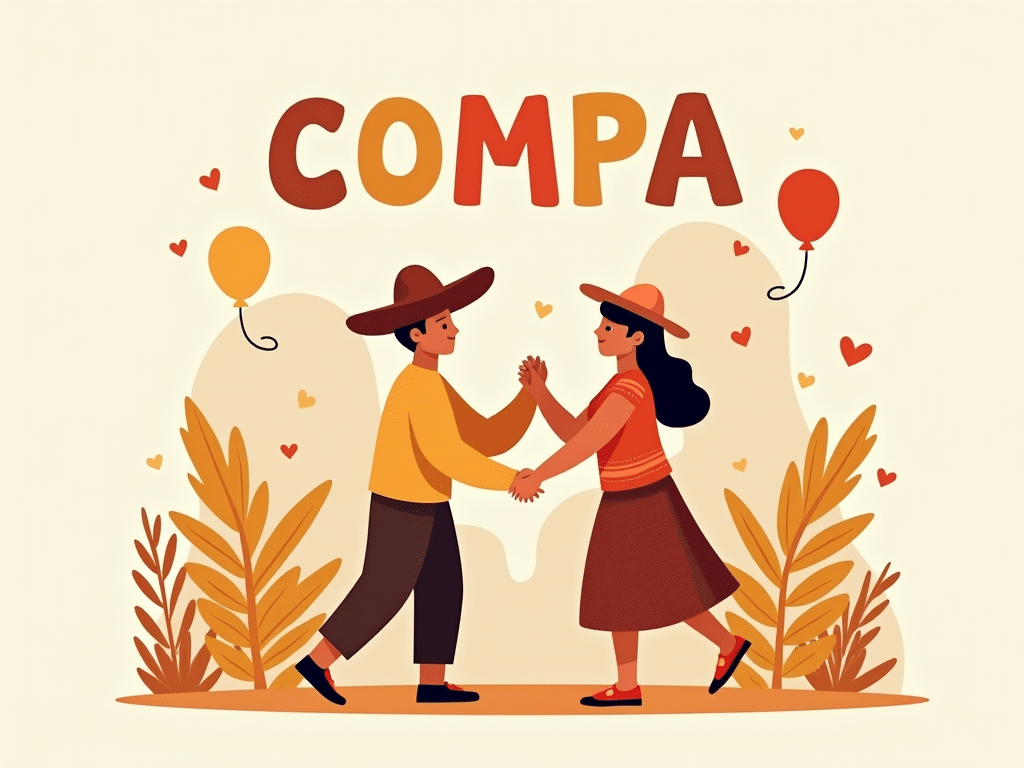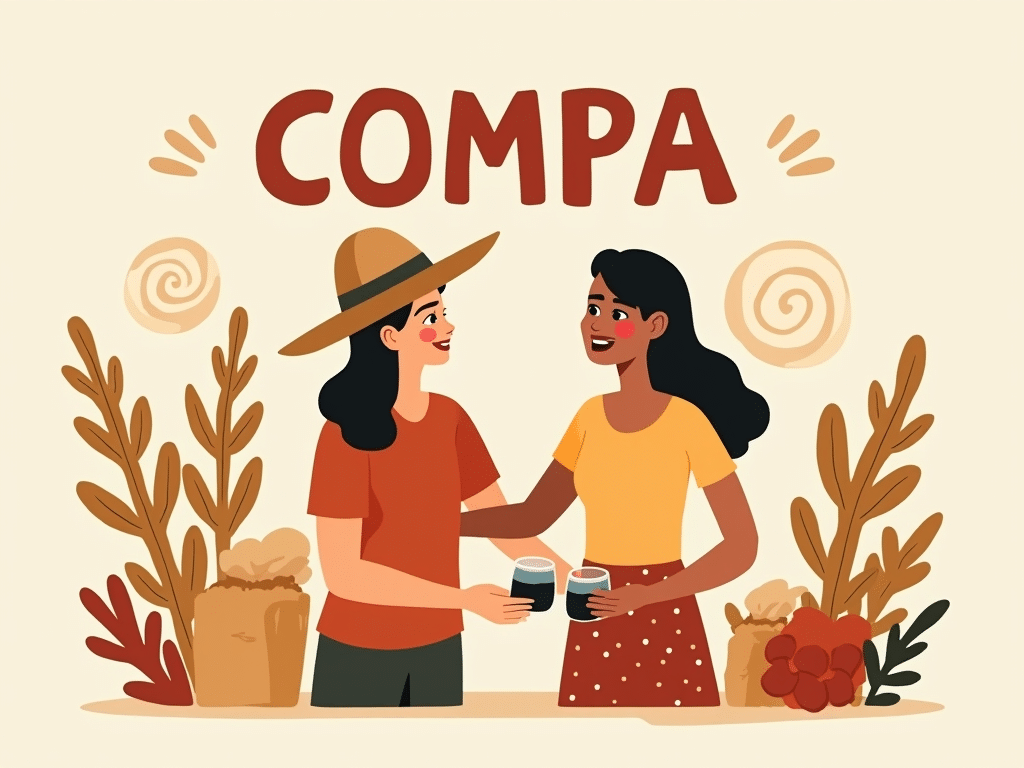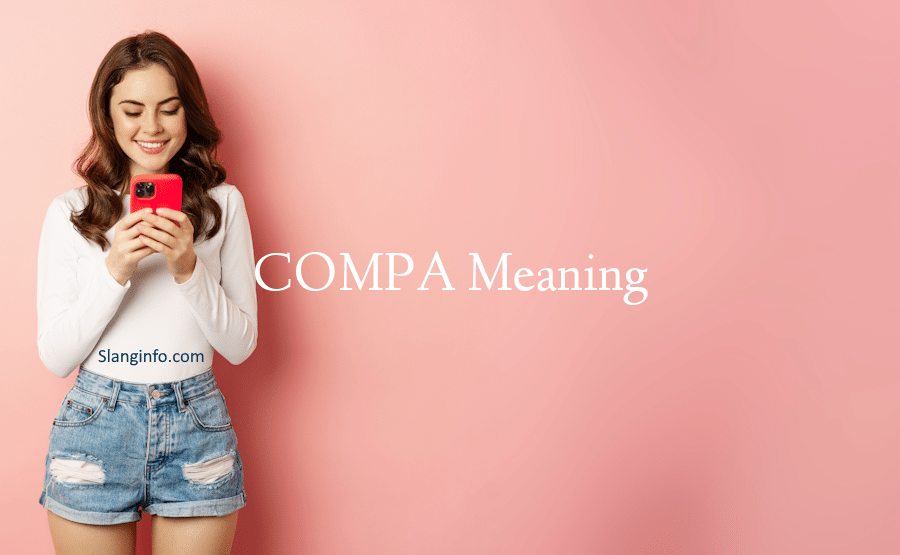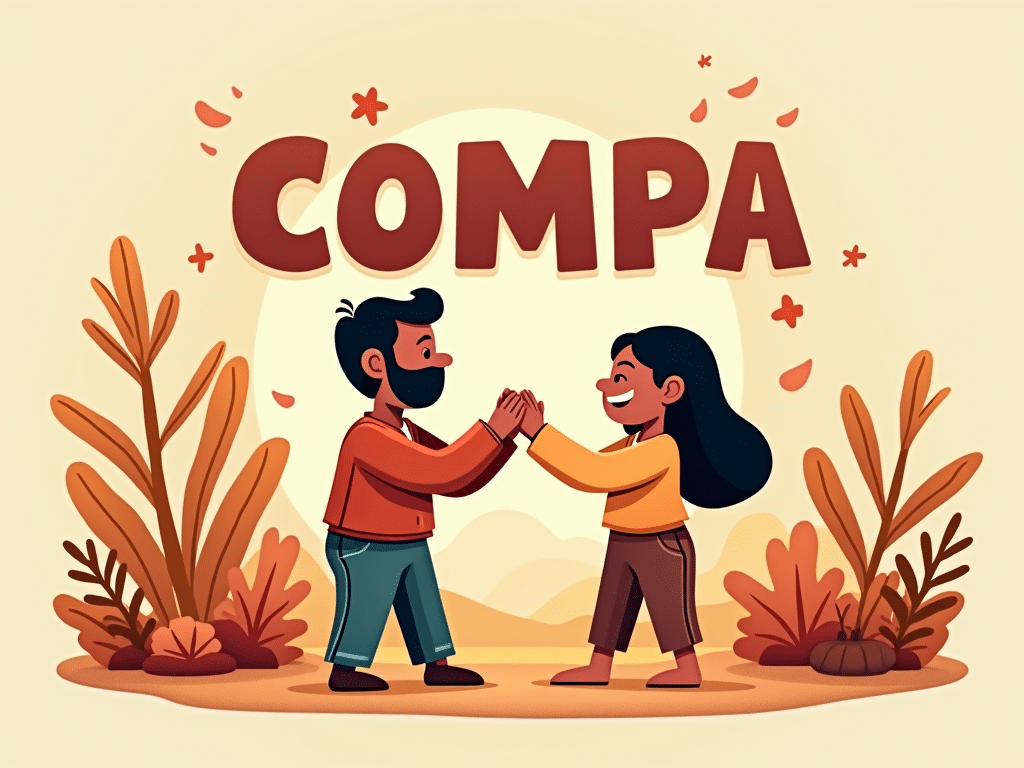Hey there, language explorers! Ever heard someone say “¿Qué onda, compa?” and wondered what they meant? Well, you’re about to become an expert on one of Mexican Spanish’s most popular and friendly terms. Just like “fam” in English, “compa” is all about showing love and friendship! 🌟
| Key Takeaways | Description |
|---|---|
| Origin | Shortened version of “compadre” |
| Primary Usage | Informal term for friend/buddy |
| Cultural Context | Deeply rooted in Mexican culture |
| Gender Usage | Traditionally used between men |
| Regional Impact | Varies across Latin America |
Compa Meaning: Your Guide to Mexican Slang’s Friendliest Term 🤝

Origins and Etymology 📚
Let’s start with where “compa” comes from. This friendly little word is actually the shortened version of “compadre,” which traditionally means “godfather” but has evolved to mean much more.
Think of it like how “bruh” came from “brother” – it’s shorter, cooler, and way more casual. The evolution went something like this:
- Compadre (formal, traditional)
- Compa (informal, friendly)
- Modern usage (super casual)
Primary Meanings
“Compa” has two main uses in everyday speech:
1. Friend/Buddy Usage:
- Casual greeting between friends
- Show of camaraderie
- Expression of trust
- Mark of friendship
2. Godfather Relationship:
- Traditional meaning
- Family connections
- Spiritual bonds
- Formal relationships
It’s like having a word that means both “bestie” and “respected elder” at the same time!
Regional Variations 🗺️

Just like how English slang varies from place to place, “compa” hits different depending on where you are:
Mexico:
- Most common usage
- Super casual and friendly
- Used daily between friends
Central America:
- Similar to Mexican usage
- Slightly more formal
- Less frequently used
South America:
- Less common
- Different meanings in some places
- Other terms might be preferred
Think of it like how “yeet” might mean different things in different parts of the English-speaking world!
How to Use Compa
Want to use “compa” like a pro? Here’s your quick guide:
DO:
- Use it with friends
- Keep it casual
- Match the energy
- Respect the context
DON’T:
- Use it in formal situations
- Force it if you’re not familiar
- Overuse it
- Ignore cultural context
Remember, using slang is like adding spice to your language – you want just the right amount! 🌶️
Alternative Terms 🗣️

Let’s explore some other words you might hear instead of “compa.” Just like how English has tons of ways to say “friend,” Spanish has got options:
Common Alternatives:
- Cuate (Mexican slang for friend)
- Carnal (like saying “bro”)
- Güey (super casual, like “bruh”)
- Pana (popular in South America)
Here’s a handy comparison:
| Term | Region | Formality Level |
|---|---|---|
| Compa | Mexico | Casual |
| Cuate | Mexico | Very casual |
| Carnal | Mexico | Super casual |
| Pana | South America | Casual |
Cultural Impact
“Compa” isn’t just a word – it’s a whole vibe! It represents:
- Social Bonds:
- Friendship circles
- Community connections
- Trust relationships
- Group identity
- Modern Usage:
- Social media conversations
- Text messages
- Youth culture
- Music and entertainment
- Cultural Significance:
- Traditional values
- Male bonding
- Social hierarchy
- Community respect
Social Media and Modern Usage
Just like “periodt” took over English social media, “compa” has its own online life:
- Used in memes
- Hashtags (#CompasForLife)
- Instagram captions
- TikTok trends
Tips for Using Compa Correctly
Want to sound natural using “compa”? Here’s the inside scoop:
- Read the Room:
- Use it with people you know
- Match others’ energy
- Respect cultural context
- Stay casual but respectful
- Context Matters:
- Perfect for friendly gatherings
- Great for informal texts
- Not for business meetings
- Skip it in formal writing
- Cultural Awareness:
- Understand its origins
- Respect its meaning
- Learn local variations
- Appreciate its significance
The Future of Compa
Like all language, “compa” keeps evolving. Here’s what we’re seeing:
Trending Changes:
- More gender-neutral usage
- International adoption
- Online variations
- New contexts
Common Mistakes to Avoid
Don’t pull a “IKYFL” moment – avoid these common mistakes:
- Using it too formally
- Forcing it when you’re not familiar
- Ignoring regional differences
- Overusing it
Conclusion
“Compa” is more than just a casual way to say friend – it’s a window into Mexican culture and Spanish language evolution. Whether you’re:
- Learning Spanish
- Making new friends
- Understanding culture
- Exploring slang
…knowing about “compa” helps you connect with others and appreciate the richness of language.
Remember:
- Use it naturally
- Respect its origins
- Understand its meaning
- Appreciate its value
Just like how “fam” brings people together in English, “compa” creates bonds in Spanish. It’s all about connection, respect, and friendship! 🤝
P.S. Want to learn more about international slang and cultural expressions? Check out our articles on global slang terms and cultural communication. Because understanding language means understanding people! 🌎
Keep it real, compas! And remember – good slang is like good salsa: use just enough to add flavor, but don’t overdo it! 😉







